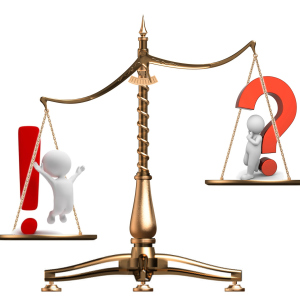Fascism is a complex ideology. Some consider it a type or set of political action other - political philosophy or a mass movement. However, they both share the view that fascism is authoritarian and at any price encourages Nazism.
The origins of fascism
The word "fascist" comes from the Italian "fasces", which means a bunch of sticks tied to the ax. Philosophy originated in ancient Rome and symbolized the power of the imperial magistrate (sudispolnitelya). In the 20th century ideology was revived after the First World War. In Europe, the old empire collapsed. Russia turned to communism. On the continent, widespread poverty and anarchy. Active young people tried to restore order in their own way. They plunged into racism and colonialism Darwinian idea of \u200b\u200bsurvival of the fittest.
In 1919, a soldier and journalist Benito Mussolini was the founder of the fascist party in Italy. He broke through to power and established a dictatorship in 1925. In the thirties the Nazis took control of several European countries. The most influential movement was the National Socialist (Nazi) revolution of Adolf Hitler in Germany. In 1939, the dictator invaded Poland, triggering another global war. The conflict ended with the complete defeat of Germany and Italy. Fascism has lost all credibility, although he still remained in the governments of Spain, Portugal and Latin America.

What did the Nazis?
Many believe fascism rules of the road, because he emphasized race or national identity. There are historians who refer to it as the left movement, as an ideology rejected class elitism and control the economy. Nazis themselves did not consider themselves neither left nor right, but just wanted to win power and "rejuvenate" the nation. Thinker Ernst Nolte argued that fascism - it is a great "anti" philosophy, which brings together people, frightened by social and economic changes.

Combining principles of movement
There are the following criteria characterizing the ideology:
- Hate to democracy. The government should be held strong and smart people, at the head of which is a dictator.
- The need for violence. Power is a legitimate way to achieve power, and military actions only share.
- Men are born for work, women - to raise children. Europeans are in their essence superior to other races due to heredity and education.
- National identity. Competition between nations is inevitable and even is a structural force during history.
- Strong sense of community or fraternity. Unity and cleanliness of movements are supported by common persuasive or violence, if necessary.
- Universal support for the "natural" male leader. This leads to the fact that one person takes on the role of the National Savior.
People shared the views of the fascists due to psychological and idealistic reasons; Some thought it was the only "weapon" against the Soviet communism. But, in retrospect, everything ended with war and genocide. The Gate of Auschwitz witnessed the terrible crimes of fascism.

Today's fascists
Given that Nazism was the answer to the conditions of the twentieth and thirties, it is surprising that today it exists in two forms.
- The first is people who are not afraid of fascism label and using the Nazi swastika. They join other extremist organizations or peripheral parties, such as the British National Party. Many of them have a criminal history.
- The second type is neophascists, followers of Mussolini and Hitler movements. They often declare themselves. The objectives of their ideology there are anti-communism, nationalism and antichristism.

Symbols and slogans of neo-fascists
Modern fascists, despite illegal activities, use power methods of exposure. They spend their speeches to destroy other nations under the slogans of the Rodonchalovnikov: Zig Khail or "Heilhitler!" (It is often encrypted with numbers 88 or 14/88). The main symbolism of fascism is the swastika or Celtic and Maltese crosses. The flags of the Nazis have red-black shades.

Use words
Disagreements about the accurate value of "fascism" and "fascist" are even today. Instead of applying it as an accurate name of ideology, the word is used as an insult in describing a person who has intolerable, authoritarian or extremely right points of view.

Perhaps the chosen fascism of the future will not look like the fascism of the past, but it will always be tied to his terrible story.


















